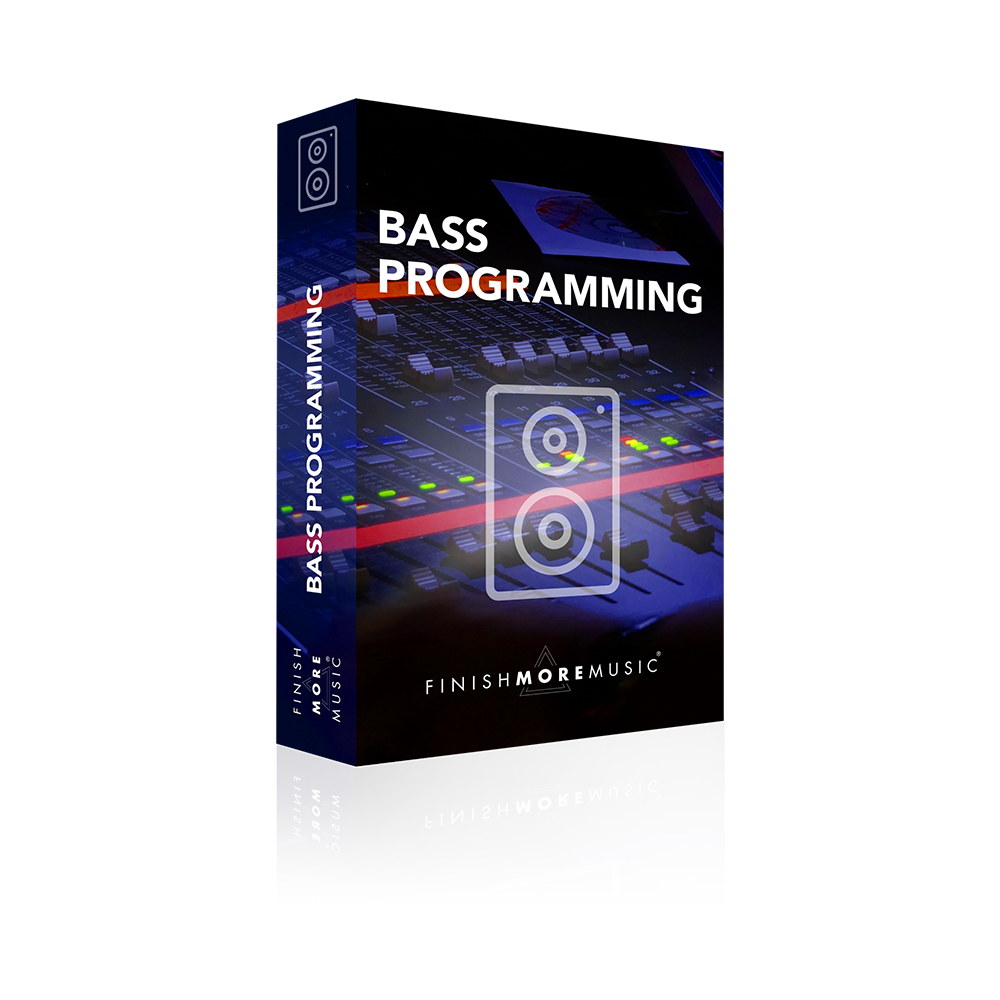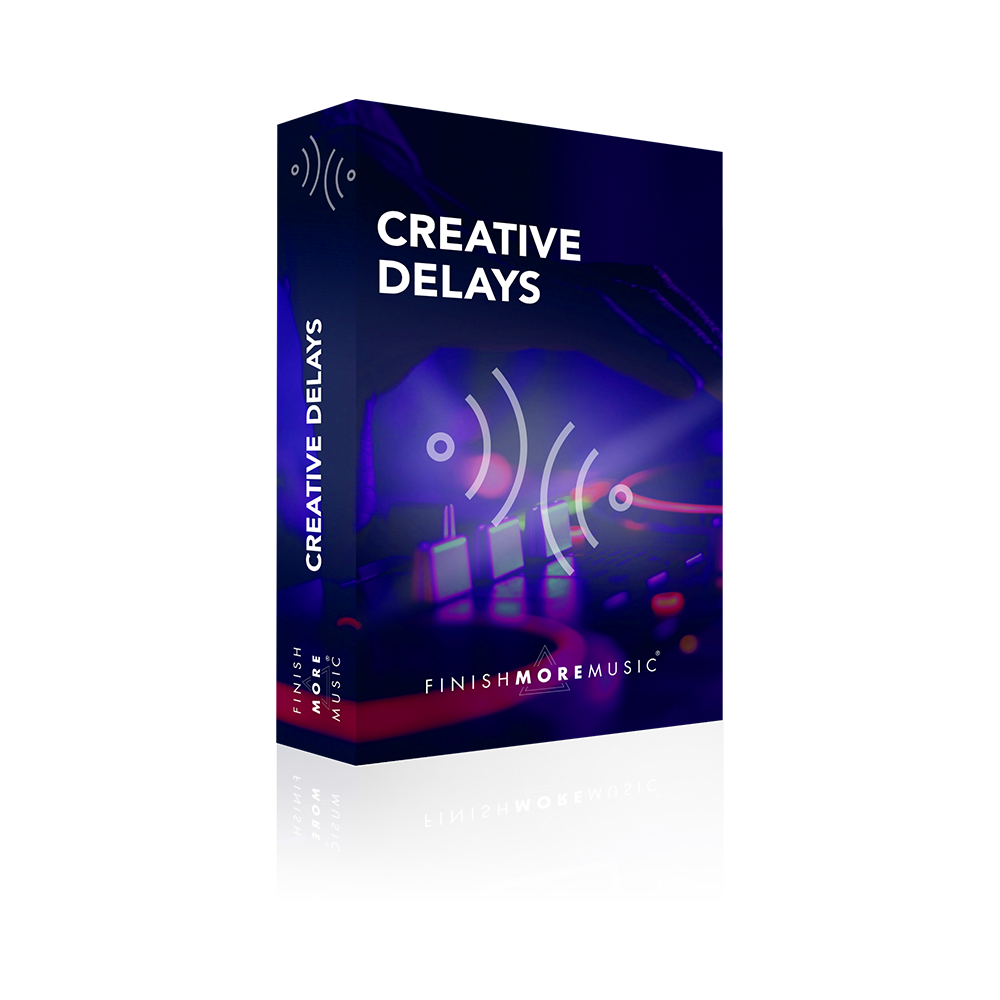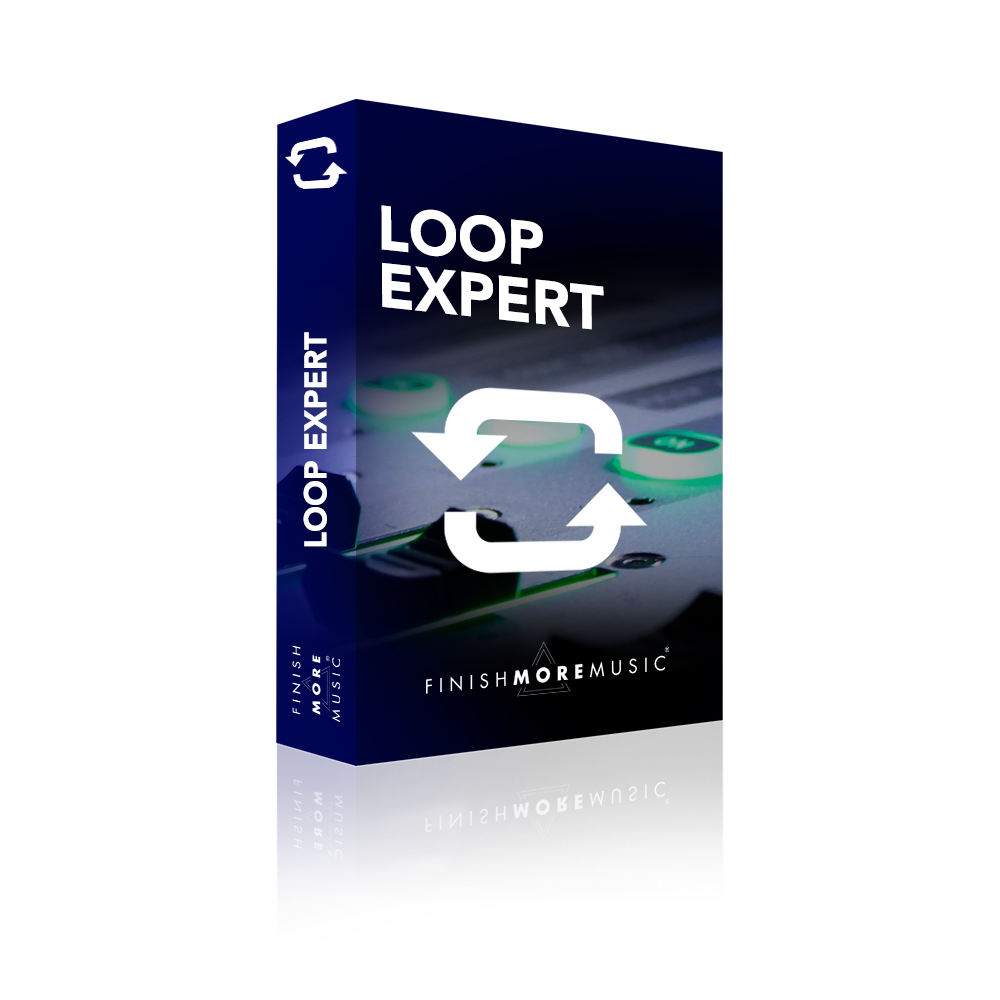Hi, I’m Keith Mills and this is episode number 72 of the Finish More Music podcast. And today we’re going to be talking about imposter syndrome.
Now imposter syndrome is a mindset block. It saps our confidence and it’ll stop you from grabbing opportunities that you really desire when you get the chance. Now, this can manifest itself as downplaying your achievements, an inability for you to accept praise, self-doubt, and of course the big one, a fear of being exposed as a fraud, particularly when you’re looking at sharing your art and your creations with the world.
Now, these thoughts seep in for everyone. Even the most accomplished of producers who you would imagine never think these things also struggle with this. But it doesn’t mean you can’t overcome these thoughts and grab the goals and the desires that you really want in your life. So in this podcast, I’m going to provide you with the antidote to the poison that is imposter syndrome. It’s a big one, so let’s get stuck in.
This is the Finish More Music Podcast, a show for underground dance music producers who want to finish more and better music and to share it with the world. My name’s Keith Mills, and every week, we’ll dive into the mindset and creative strategies that will help you to move further and faster along your music production journey.
Hello, and thank you for joining me for another episode of the Finish More Music Podcast. So I hope you are well. I’m recording this again on a Sunday. And it was really interesting. As I was coming into the studio, I remembered a conversation I had quite a while back where somebody said to me, “Keith, don’t you get fed up of having to work on the weekend?” Really, really interesting phrase, that. Don’t you get fed up of having to work on the weekend?
Now, the reality is, at one point, I did have a mindset like that. Things felt like maybe they were a chore. And although it isn’t the subject of this podcast, I thought it’d be an interesting thing to kick things off with, because it will be a future podcast. And I’m going to hopefully quite smoothly bring it into what we’re talking about today. But actually when I figured out my purpose and my vision and what I wanted to do, it didn’t become a situation of being fed up because I had to work. It became a situation of getting to pursue my purpose, getting to live into my vision on the weekend. It’s something I want to do. I don’t have this whole work-life balance thing. That isn’t a reality for me. I have life, and that’s it. And I get to show up and I get to choose to do what I want to do.
And the opportunity to empower other people, positively impact them in some way, and then for them to positively impact other people… Because it’s like chucking a rock in a pond, right? It ripples outwards. If you have a bad day, other people end up having a bad day, or at the very least getting influenced by your bad day. But if they have a bad day, then someone else might have a bad day. And the reverse is true. If you learn something, hear something, get lit up in any way by something that I do, the chances are you may then pass that on to somebody else, who passes it on to somebody else.
So the opportunity to do that. I get to do that. I don’t have to do that. I don’t have to work. I get to live into my purpose. Can’t think of many more things I’d rather be doing on the weekend, if I’m totally honest with you. So I’m going to talk about this in a future podcast, this idea of purpose, because it’s something that has really helped me on my journey massively. And it just came into my mind as I was coming into the studio. So I wanted to open up with that.
But the way that it links really well into what we’re going to talk about is, isn’t it amazing how things feel very different when we change the way we speak and the stories that we tell ourselves? Brilliant quote, right? “When you change the way you look at things, the things you look at change.” What a great quote. So feel the difference. Just feel the difference between “Aren’t you fed up having to work on the weekend?” versus “I get to live into my purpose on the weekend.” How different does that even feel to you? It’s huge.
And this is what we’re going to be talking about today, but in a slightly different way. We’re going to be talking about an absolute classic crippling mindset that holds so many people back called imposter syndrome. It’s like a poison, and the aim of this podcast is for us to address it, and also for me to give you what I feel are the best antidotes for it.
So let’s get stuck in. What is imposter syndrome? Well, it’s a persistent, nagging feeling of being a fraud, feeling like you don’t belong, devaluing your own worth, undermining the things that you have achieved. And despite all of your previous achievements and there being plenty of evidence there for you to dig up, this won’t go away. It’s this nagging, persistent feeling of, “I don’t belong. I’m a fraud. I’m not cut out for this. I’m not good enough.”
And here’s the crazy thing. It doesn’t matter where you are on your journey. This can rear up its ugly head. This poison can be injected into your life. Great podcasts for you that really, really exemplifies this is The Best of the Best Versus Fear. So we did a rerun of this, episode number 56. If you haven’t checked out this podcast, I really strongly recommend listening to it. It’s one of my absolute favorites. It’s one that has been talked about and discussed and I’ve been messaged about more, pretty much, than any other, I think. The inner bully, inner coach one was huge as well, and we’re going down that road a little bit here. It’s absolutely huge. And even if you have checked it out, I recommend going back and checking it out again. It’s really, really very valuable.
And it was an insight that I had when I was watching a show where celebrities were being put through a section of SAS special forces training. And during interviews, many of them were talking about imposter syndrome. They were talking about feeling like a fraud and feeling like they weren’t good enough. And this included people like Premier League winning footballers, Britain’s most celebrated female Olympic champion. Think about that. Won loads and loads of gold medals, loads of world titles in cycling, and still had a nagging doubt that she was going to get found out and she wasn’t good enough, causing them a lot of pain, a lot of anxiety, a lot of anguish. Even, would you believe it, Albert Einstein spoke about this, having imposter syndrome.
And it’s totally in the world of music. Of course it is. It floors creatives on a regular basis. Episode number 67, just a couple back now, Bushwacka! was talking about this. I mean, we’re talking about a guy with a career that spans over three decades, amazing music across multiple genres, and still it comes up for him. It’s persistent. It can strike at any time, and it can be completely debilitating.
So let’s talk about this. Let’s dig a little bit deeper into the negative ramifications of letting this take a hold of you, of letting this poison run through you. And then we’ll look at some antidotes, very, very powerful couple of techniques I’ve got for you.
So when this shows up, what is the damage that this can do? Well, it can really, really hugely stop you from moving forward in any way towards your goals. So let’s cover a few things here. You may well have, and almost certainly, I’d go as far to say, experienced this situation where it holds you back from doing the very thing that you want to do. Let’s say you wrote a couple of tracks that were beyond the level that you are used to writing. You’re like, “Wow, they are decent tracks. I’m really pleased with those.” And maybe they’re in a sea of what you might particularly, if you’re beginning, consider to be tracks that don’t really meet your expectations. You’re not too chuffed with them. So then imposter syndrome crops up and says, “Those tracks were a fluke. Yes, you wrote those tracks, but you’re not good enough. You’re no good. You’re not cut out for this. Those tracks were a fluke.”
Now, what happens in that situation? We’re likely to avoid writing any more tracks. Why? Because if they don’t reach up to that standard, it will prove to us that that was a fluke and we are no good, and we shouldn’t be here and we don’t belong, and who on earth do we think we are to be writing music in the first place? So if imposter syndrome gets in and says, “You’re not good enough,” then we’re likely to avoid doing anything that might prove that and rears that horrible voice up again. And of course, what we really want to do is be writing music, is be creating art.
Another classic one is sharing. So you’ve written a few tunes. You think, “Yeah, they’re decent. I want to get some feedback on those tracks.” And then the voice comes up again. “Well, but what if people tell you they’re no good? You’re going to get found out. Those tracks aren’t as good as you thought they were. You’re not as good as you thought you were. It’s going to shine a light on that.” So what do we do? We avoid getting the tracks out there for feedback from a kick-ass peer group.
The very thing that would move us forward, we avoid it. We avoid getting feedback, because it might prove to us that we’re not as good as we thought, or rather we’re not as good as that voice tells us. Right? It’s got nothing to do with us. And it’s the voice that’s blabbing away. The imposter syndrome. Same with sending to labels, comes up so much. I hear this so many times, right? Someone says, “Yeah, but I’m not ready. I’m not ready yet.” And the fear here is, “I’m not ready. I don’t belong. I’m not good enough. If I send it to a label, what if they reject it? If they reject, it proves that I’m not good enough and maybe I never will be.” And what is the thing that you really want? It’s to get a release on that label.
So I’ve spoken about this in the past, but the story that we tell ourselves creates the outcome that we want or that we don’t want. Okay? So here’s a really, really good thing to you for you to write down. When you live into fear, you get the results of that fear. Let me say that again, because this is so, so, so important. When you live into fear, you get the results of that fear. So, “I don’t have what it takes to write great music.” That’s a fear. Okay? “I fear that I don’t have what it takes to write great music.” Imposter syndrome. “I’m not good enough. I’m a fraud.” So you avoid writing music.
And what is the consequence of that? Well, you don’t get the exposure of writing music that builds up the skills to write what your version of great music is. “I don’t have what it takes to write great music.” So I avoid writing music because I don’t want to prove to myself that I don’t have what it takes. But actually the reality that creates is that I don’t have the skills to get to the level to write my version of great music.
“I don’t belong amongst people who release on labels.” We avoid sending into labels for fear of rejection that might confirm that to us, and then of course we won’t be in a group of people releasing on labels. We won’t get the very thing that we want. It’s a self-fulfilling prophecy. It creeps in. It is a poison that creeps into us. We’re a fraud. We start devaluing the things that we have achieved. “Yeah, I did think this tune was good enough, and I did think it was good enough to send to that label, but when it comes to crunch time, when it comes to the tipping point, all of a sudden, no, actually I’m not good enough. I’m not ready. I won’t send it.”
So the question is, how long are you prepared to let imposter syndrome win? What is the consequence of this? Where will you be one year from now if you keep telling yourself that you’re not good enough to do the very things that you’re passionate about doing? Where will you be? What will life be like one year from now?
And so you have a choice. Do you choose imposter syndrome or do you choose to believe in yourself? That is a choice. You can choose to show up and encourage yourself and to believe in yourself and to acknowledge the amazing things that you’ve done and achieved in your life. Or you can choose to let imposter syndrome keep telling you you’re no good, keep undermining you, keep devaluing you, keep causing pain, suffering, frustration, keep causing Groundhog Day, keep causing you to go around in circles. Believe in yourself or imposter syndrome. Your choice.
Here is the deal. If you live into your vision, then you will take the action you need to make your vision a reality. Great thing to write down again. If you live into your vision, what you really want, your passion. If you get clear on that, if you live into that, then you’re going to take the necessary action to make your vision your reality. If you live into fear, then you will make that fear a reality.
If you’re living to fear, you will make that fear a reality. If you don’t believe you have what it takes and you say to yourself, “I don’t have what it takes to write great music,” you’ll avoid writing great music and you won’t have what it takes to write great music. Really, really important concept to grasp. If you live into your fear, that fear is going to become your reality. “Do the thing, have the power.” I love that quote.
Here’s another brilliant quote, Eleanor Roosevelt. “We gain strength, courage and confidence by each experience in which we really stop to look fear in the face. We must do that which we think we cannot.” Now I’d like to add a bit of a caveat to that, because for me, it’s change it at the source. And that’s believe we can. Rather than do what we think we can’t, if we recognize that, we want to flip that round and say, “No, I can do it.” And then we take the action and that becomes our reality.
So let me give you a couple of antidotes, the most powerful things I know. I use these. They work incredibly well. They’re going to switch you from that place of fear and that horrible voice that’s digging you out into a place of confidence and encouragement.
So, the first one, okay? Objectively observe your thoughts and challenge them with evidence. Now here’s an incredible thing for you. It’s called the cookie jar. Absolutely loved this. So I heard about this from a guy called David Goggins, I think it was, maybe a YouTube video. If you’re not familiar with this dude, he is beast mode. This guy is crazy-crazy. He’s an ultra marathon runner, an ultra distance cyclist, triathlete. He’s also a creative. He’s an author. And he was a Navy SEAL in the US military. So like, he’s an animal of a dude. He’s a physical monster. And he pushes himself to absolute extremes, marathon after marathon after marathon in a row.
And what he said is he has this thing that he calls the cookie jar. And when he gets to a point where his mind starts to come up with the imposter syndrome stuff, “You’re not good enough. You can’t do this. Your body’s going to give away,” all of this stuff, he reaches into his cookie jar and he takes out a piece of evidence to the contrary.
So what the cookie jar is is you writing down all of the amazing things that you have achieved. Right? In fact, all of the things that you’ve achieved would be great, but most of them are way more amazing than perhaps you give yourself credit for. So we’re looking at past achievements and particularly past achievements where you’ve doubted yourself and then you’ve come through it anyway, or past failures where you had extrapolated the consequences of a failure being so dire, and actually you failed, but there were little or no consequences and you carried on just fine and you learned from it and you grew.
Because here’s the deal. You are so unbelievably strong. Unbelievably strong. Don’t believe me? Okay, think about this. Every illness you have ever had, every injury, any physical pain you have ever experienced, any pressure, any fear, any doubt, any circumstances that you have faced in your entire life, you have overcome because you are here right now, listening to me, talking to you on this podcast. Think about that. You have unbelievable reserves of strength and power.
But incredibly, imposter syndrome manages to completely avoid those. And so it’s on us to look all of those times, all of those moments and all of those achievements and put them in the cookie jar. And then to keep revisiting it, to have it in your head, so that when the imposter syndrome comes up, you can just reach in the cookie jar and go, “Yeah, but I’ve achieved this and I’ve achieved that and I’ve achieved the other one.”
So my cookie jar has got loads of stuff in it from work, from personal stuff. Things like Ana and I buying and renovating a house. And I remember a time when I felt really rock-bottom. I was in the back garden, this was at a previous property, scrubbing down radiators to get the old blistered paint off them, because we didn’t have that much funds cash-wise. I was about to start this business, and we put everything into buying the house and I needed to do a load of the donkey-work, because I’m not a DIY guy. So we’d hired in a painter and decorator. And one of the ways to save time is me doing this. And I remember my hands blistered and bleeding on the sixth or seventh radiator, feeling exhausted and rubbish and going, “Oh no, I can’t do this.” But we got through it. We got through it. We had a beautiful home at the end of it. We got through it.
Work things. I remember I had to go and pitch. When I worked in the city, I was pitching for business, and I went out to a place called Reading. So I caught the train out to Reading. And as I understood it, I was meeting my contact there, who I knew, and I was pitching to two of the partners in the Reading office. This is a top four accountancy firm in the world. Big deal. Biggest pitch I’d ever done. And it’s snowing. And anyone who lives in the UK will know that when it snows here, everything grinds to a halt. So the trains are all jammed up. It’s not working out, I’m running late. I get a phone call from my contact. “I’m off sick, but it’s still going ahead.”
So now I’m walking in there, I don’t know anybody, I’ve got no support whatsoever and I’m running late. And I’m sitting on that train, and of course the imposter syndrome is firing off. “Oh no, I’m not going to be able to do this.” I walk in. It turns out I’m not pitching to these two partners. I’m pitching to partners from every single office in the south of the United Kingdom. And they’re all on this conference call. And I’m wandering into this. Late, stressed out, contact isn’t there. I won the business. I never in a million years thought I would. Boom, straight in the cookie jar, right? Straight in the cookie jar.
And you are going to have so many things that crop up that you cannot imagine when you think through your life of all the incredible things you’ve done, the incredible strength, the incredible achievements. It’s such a worthwhile thing for you to do. I really strongly recommend it. And then don’t hide it and forget about it. Take a look at it a couple of times a week, just to remind yourself. It is the absolute opposite of what imposter syndrome is and what it’s trying to tell you. You’ve totally got it, and you’re going to prove it to yourself. Okay? So that’s a David Goggins thing. It’s called the cookie jar. Thoroughly recommend going for that.
And the second big antidote to imposter syndrome is getting around and confiding in people you trust, who will give you open, honest and constructive feedback. Brilliant quote, love this. “Feedback is the breakfast of champions.” Ken Blanchard. “Feedback is the breakfast of champions.” And we have found that to be absolutely true. Inside of the Finish More Music community, it is one of the biggest things that we do. We value it really highly. Members giving feedback on one another’s music, mentoring, coaching, it’s a huge deal. And it is a great way to shine a light on imposter syndrome. Our community absolutely thrives off of peer review.
Here’s a story for you. Recently we did one of our creative challenges where we create something cool for our community to do, to participate in, with an end goal. I love there to be an end goal, something that they’re going to achieve. And this particular one was our lightning releases collaboration project. So what it involved was members of the community, through a system that we set up, pairing them off, working together on a couple of tracks. And at the end of it, they were going to submit them to labels. So we laid out everything they needed. Okay? All of the different bios, the labels, the whole piece. So it was really streamlined. They show up, they write the music, they go through all the steps that they need in order to submit. We did master classes. We did all of these things.
Here’s the deal. At the end of it, when the members had sent their music out… And they didn’t have to. They didn’t have to send it out. It was entirely up to them. But at the end of it, in that month alone, and there’s a load more coming now, there were 30 unique releases. Not tracks released. Unique releases. So think. A release has one, two, sometimes three pieces of music on it, right? 30 releases from doing that alone.
And here’s the bit that ties in beautifully with this. The number of people who were on fire, lit up, motivated, excited, inspired, in the community, posting, saying, “I didn’t think I could do it.” Imposter syndrome. “I didn’t think I was ready. I didn’t think I was up for it, but because I collaborated with someone, because we had coaching and because I had feedback on this, it gave me the confidence to do it.”
And they did it. And it proved what? Once again, the imposter syndrome was BS. It was lies. Imposter syndrome is just beliefs. It’s just nonsense. It’s just telling ourselves we can’t do something when we’ve got a bunch of evidence to the contrary, and most times we’re absolutely going to kill it if we go for it.
Another story on this front, Mark Jenkyns. So I’ve worked with Mark closely for many, many years. Incredible tech house producer, constantly releasing on the biggest house music labels out there. Mark had this track called Sirens. If you’re into your house music, you’ve almost certainly heard of it. It was the smash hit of Ibiza. It was huge. Massive, massive track. Mark sent that to me before he sent it to anywhere and said, “What do you think? I’m not sure about this. I’m not sure about that. I’m not sure about this.”
I said, “This is dynamite. This is an incredible tune. This is great.” Sent it to Jamie Jones, runs Hot Creations, right? One of the world’s biggest DJs, one of the world’s best labels. And Jamie was like, “Yeah, it sounds fantastic.” And Mark was like, “Yeah, but it needs a bit of a mixdown and I need to make some changes and I need to do some of that.” Imposter syndrome, right? “It’s not good enough. It’s not ready.” Jamie’s like, “No. Rubbish. It’s great. I played it out this weekend. The place went off, signed it on the spot.”
Imposter syndrome. One of the best antidotes is to get around other people, to get around peers. Got to be people are open, honest, going to give you constructive feedback. That’s an important piece here. Right? But get around your peers, because they’ll shine a light on imposter syndrome, on the lies, on the false beliefs. They’ll shine a light on it in exactly the same way your cookie jar will.
So they are the two most powerful antidotes that I know. And they work a treat. If you are someone who has this voice in your head that keeps devaluing your worth, telling you you’re not good enough, try these out, because I’ve found them to be highly, highly effective.
So let’s wrap this one up. Imposter syndrome. It’s a nasty, spiteful, self-fulfilling prophecy. And that’s the thing to remember, right? If you live into your fear, then you are going to make that fear a reality. This is not something to leave unchecked. You’re going to want to jump on this. The reverse of that, if you live into your vision, then you’re going to take action and you’ll make your vision a reality. Do the thing, have the power. Cookie jar. Peer group. Give it a go. If you’re struggling with this, if it’s holding you back, get involved with both of those. They are the most powerful antidotes I know to the poison that is imposter syndrome.
So I hope you’ve enjoyed the show. I’ve got a big request for you on this one. I would love to hear from you on Instagram via a direct message. Okay? And what I’d love you to send me, show me that you’re doing this. Show me you’re doing this and you’re going to overcome this and you’re going to smash this out the park. Send to me one evidence of imposter syndrome that you have that holds you back with your music, back with your creativity, back with your vision, and then one item that you’ve put in your cookie jar that is the antidote to it. So it could be anything that you’ve done that proves that you’re good enough.
Send me that. I’d absolutely love to receive both of those. One thing the voice is saying, one thing the imposter syndrome poisonous voice is saying, and one thing that you’re putting in your cookie jar. I promise you I’ll read it. I promise you that I’ll get back to it. I always do. I don’t miss a beat on this one. It’s not going into a black hole. You’ll definitely hear from me.
Show notes for this, been a bit of a long one, finishmoremusic.com/072. If you haven’t subscribed to the podcast, you’re enjoying it, make sure you click the button. You’ll be kept informed as soon as any new episodes come out. We do sometimes do a couple a week, so you don’t want to miss any of these if you’re enjoying it. And please do leave a review. I’d love to hear from you. I’d love to know what your thoughts are on the show. It means the world to me to get feedback. Do take care, stay safe. I hope that you’ve enjoyed this episode and I’ll speak to you in the next one.
If you’re serious about getting your music heard and climbing the ladder as a music producer, one of the skills you absolutely must master is remixes. That’s why I put together a brand new completely free ebook for you called The Art of Remixing. It features the most prolific remixers from my Finish More Music community sharing their strategies for creating successful remix projects ready for you to share with the world. So jump over to www.finishmoremusic.com/remix and download your free copy now. You’ll learn technical setups for creating your remix, how to add your own flair whilst respecting the original artist’s track, how to create quickly to a tight deadline, how to extract melodies and harmonies, and so much more.
As well as taking the opportunity to get more of your creative output into the world, remixing is an amazing tool for building connections with other artists and strengthening your relationship with label owners. In short, remixing is essential. Try to think of a top-level producer who doesn’t have a bunch of great remixes to their name. You can’t, right? So make sure you master the art of remixing so that when your opportunity comes, you’re ready to take it with both hands and accelerate your growth in the music industry. The ebook is totally free. So dive over now to www.finishmoremusic.com/remix and grab your copy. See you in the next episode.
















